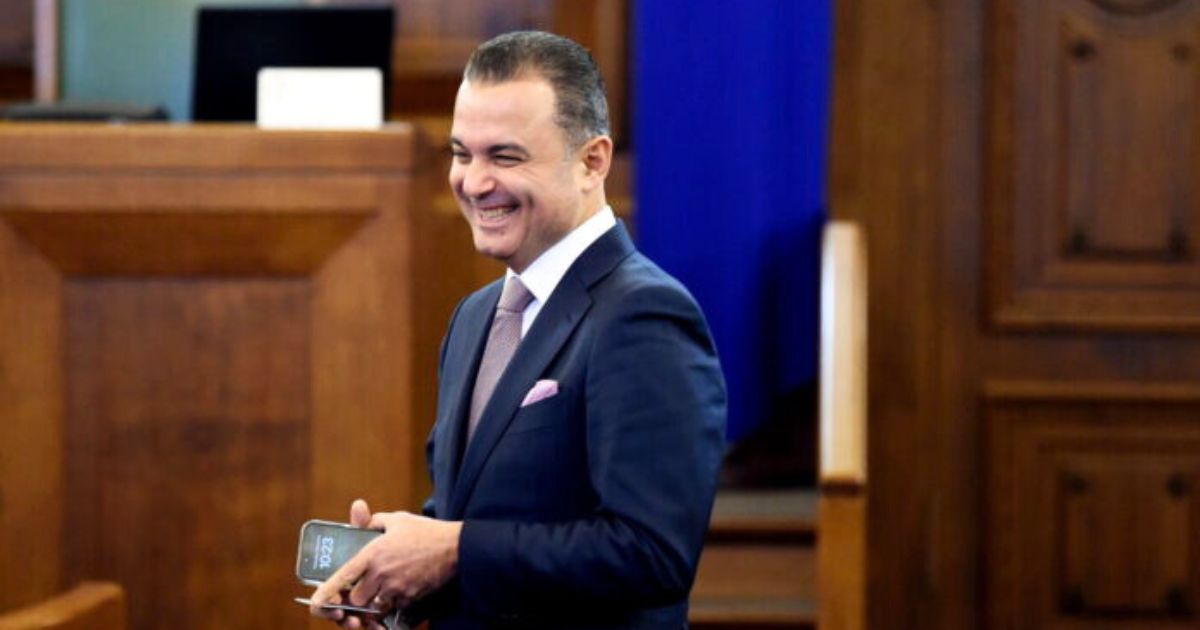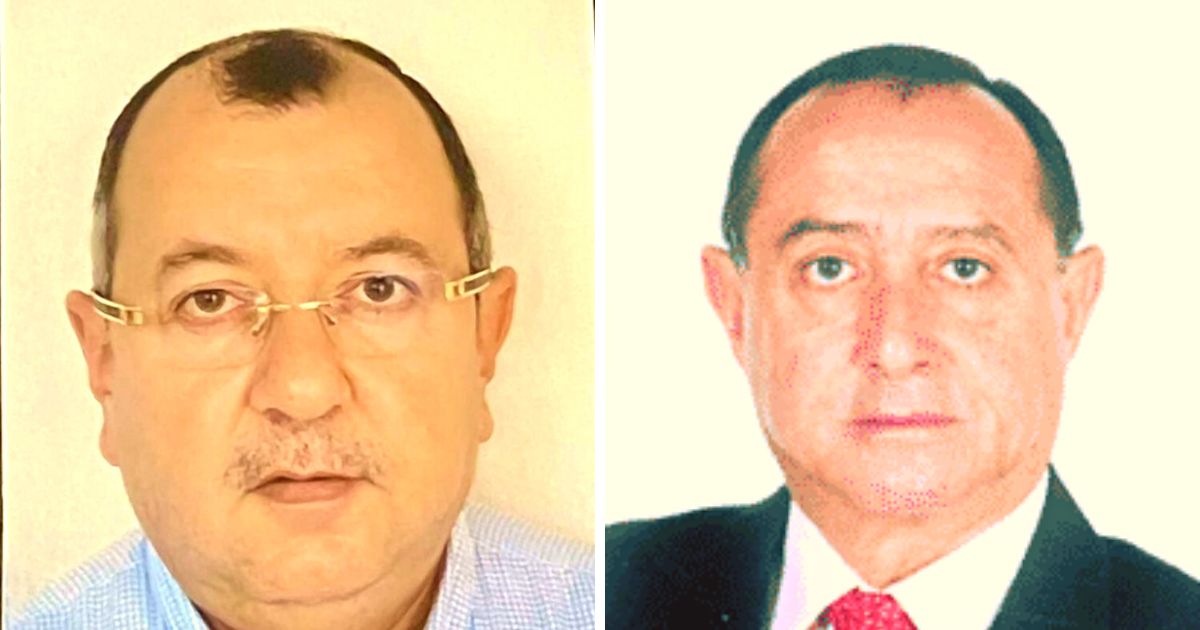With the news that Lebanese expats and members of the diaspora
were able to vote in the upcoming elections
,
tens of thousands of Lebanese abroad registered online
. A website was set up by the Ministry of Foreign Affairs and Emigrants dedicated to making it as easy as possible for the Lebanese diaspora to register for the upcoming parliamentary elections. It was a simple, well thought out website available in English and Arabic. Through the registration process, we were meant to provide all our details on the online form. This included our names, ID numbers, phone numbers, email address, the address of residence, parents name, uploads of our Lebanese ID’s and so on. Of course, this made sense since they needed to verify the identities of those applying. Not even a few hours later, I received an email confirming that my application has been approved. But little did we know, some or all of our information was going to be shared with candidates.
Before reading on:
I initially wanted to hide the names of the candidates that reached out, but I assume if our information was given to them and they are using it (without our consent) to campaign, I believe it’s fair game to share their information. I came across a tweet by Stephany Daher showing an email she randomly received from Anis Nassar, the candidate for the Orthodox seat in Aleye and Chouf District.
I have just received this email from a #Lebanese candidate to the elections inviting me to vote for him on Sunday 29th April,thus confirming the distribution of our registered data as Lebanese expatriates to several interested candidates.Thank you #GebranBassil pic.twitter.com/o5GmBNpL4S
— Stephany Daher (@DaherStephany) April 26, 2018
Few hours later, I received this random Facebook message request from Nicolas Nahas, the candidate for the Orthodox seat in Tripoli: It’s important to note, nowhere in the registration process did it request our social media information. I replied asking how they got my contact information. It was read, but didn’t get a response, as you can see:
Update 04/29/2018:
Nicolas Nahas responded to the message explaining the process: “There are two steps to this process: first we look at the publicly available lists of citizens registered to vote outside Lebanon, then we filter those who are from Tripoli. the final step, which is very tedious, is to look for each person manually and try to send them the message. Our intention was to reach out to as many expatriates as possible, with the limited information and resources we have. We hope you will be voting today.” I reached out to my friends living abroad and to the Lebanon subreddit on Reddit to see if anyone else experienced this. It wasn’t a surprise receiving direct messages from people sharing their stories and screenshots. [quads id=1] Several requested anonymity so I won’t be sharing their names. Email from Walid Negib El Khoury, candidate for the Maronite seat in the district of Jbeil: Email from Fares Souaid, candidate in Jbail & Kesrouan: One of the Reddit users also mentioned that he received a phone call from the Free Patriotic Movement party in Canada campaigning for their candidate. Another user informed mentioned that they used a specific email to register which they then were contacted by a political party accusing Gebran Bassil (Minister of Foreign Affairs and Emigrants) of stolen data.
So what happened? Was our private information sent to all candidates in our electoral district by the Ministry?
Why is this a big deal? Well for starters, the information belongs to individuals who are either dual citizens or residents of the country they live in. Most of these countries (Canada, USA, Australia, and especially Europe) have very very very strict laws against 1) sharing private contact information without consent and 2) Sending (spamming) unsolicited emails, messages and text messages to people within their jurisdiction. So now the Lebanese government can be sued in our countries for sharing our private information. As well, Lebanese political parties and candidates can be sued/fined for sending unsolicited emails, phone calls, text messages, social media messages etc. Second of all, and even more importantly, you are losing the trust of the millions of Lebanese abroad. We shared our private information with the hopes of being able to finally vote and have a say… only to be harassed with unsolicited campaign messages. What does that say about trust? How do we know how much of our information was shared? Will our voting choices at election polls also be shared with the political parties? Of course, Lebanon doesn’t have laws protecting citizens from spam. I can write a whole article dedicated to Lebanese companies, PR agencies, and mass advertisers adding your email to their newsletter without consent and even refusing to remove you when asked. But now it’s different. You’re targetting people in foreign countries. You need to abide by foreign laws. [quads id=1]
To the candidates and political parties:
Assuming you have no morals, ethics or conscious and think it’s okay to share and use private information. If that’s the case then you need to realize it’s illegal. Aside from it being illegal, it’s extremely annoying and a terrible way to campaign. It’s an instant turn off. How do you expect us to think you will respect our rights when you don’t respect our privacy and private information?
To the Lebanese citizens:
Wondering what you can do? All depends on how much time you have. If you are receiving emails, report it as spam. With enough people doing this, the service they use will block or limit them from sending further emails. If you are receiving phone calls, use apps like TrueCaller to report them. This will allow others to see who is calling them and block them right away. If not many people pick up their phone calls, they will use this method less. Whatsapp: you have the option to block and report as spam. Facebook: The best one. Facebook is cracking down on political ads in the States and Europe. If they are messaging you from personal profiles then report them for being a business/organization. This will make Facebook reach out and force them to use business pages. This limits their reach and they will have to spend more money to reach people. If they are an actual page, report them for spam. Facebook is now super paranoid about elections and spam. Let alone both at once. This will penalize them with a warning. This can range from a 3-day ban on features (including messaging) all the way to complete ban from Facebook – depending on whether or not they repeat it. [quads id=1] A 3-day ban is detrimental to a campaign. Especially this close to an election. They won’t be able to share posts, publish to their page or contact anyone. What if you have a lot of free time? Maybe look into legal action and get yourself a nice reward. The European Union is especially strict against these practices and have dedicate sites where you can report such actions. I encourage you to do so. This could result in hefty fines. Even banning them from campaigning in the future to residents of their countries (within Europe). What about if you live in Lebanon? Well obviously should reconsider voting for people willing to use your compromised information. This article isn’t meant to discourage you from voting or registering to vote. This should motivate you to vote for candidates that are best for Lebanon and that will respect our rights and privacy. The more people we can get registered, the more people we can get to vote, the quicker we can start fixing our problems.
To the Lebanese government and Ministry of Foreign Affairs and Emigrants:
What the f*** are you doing sharing our private information?

















